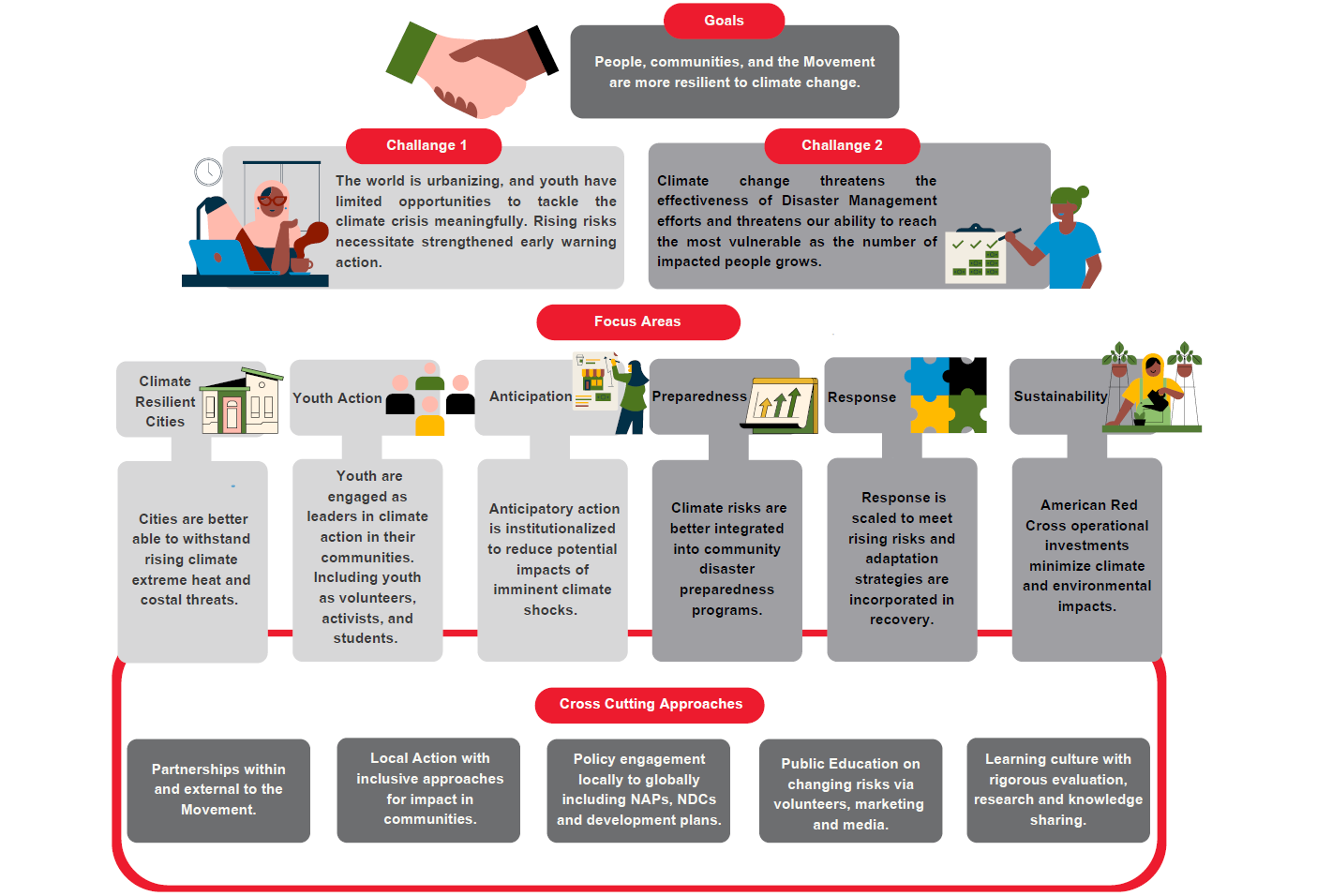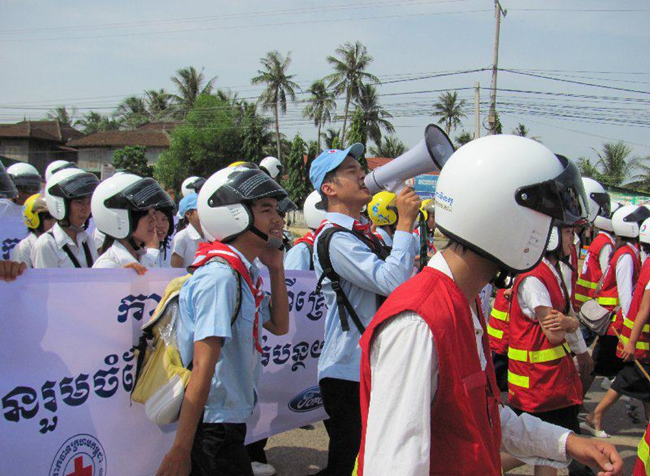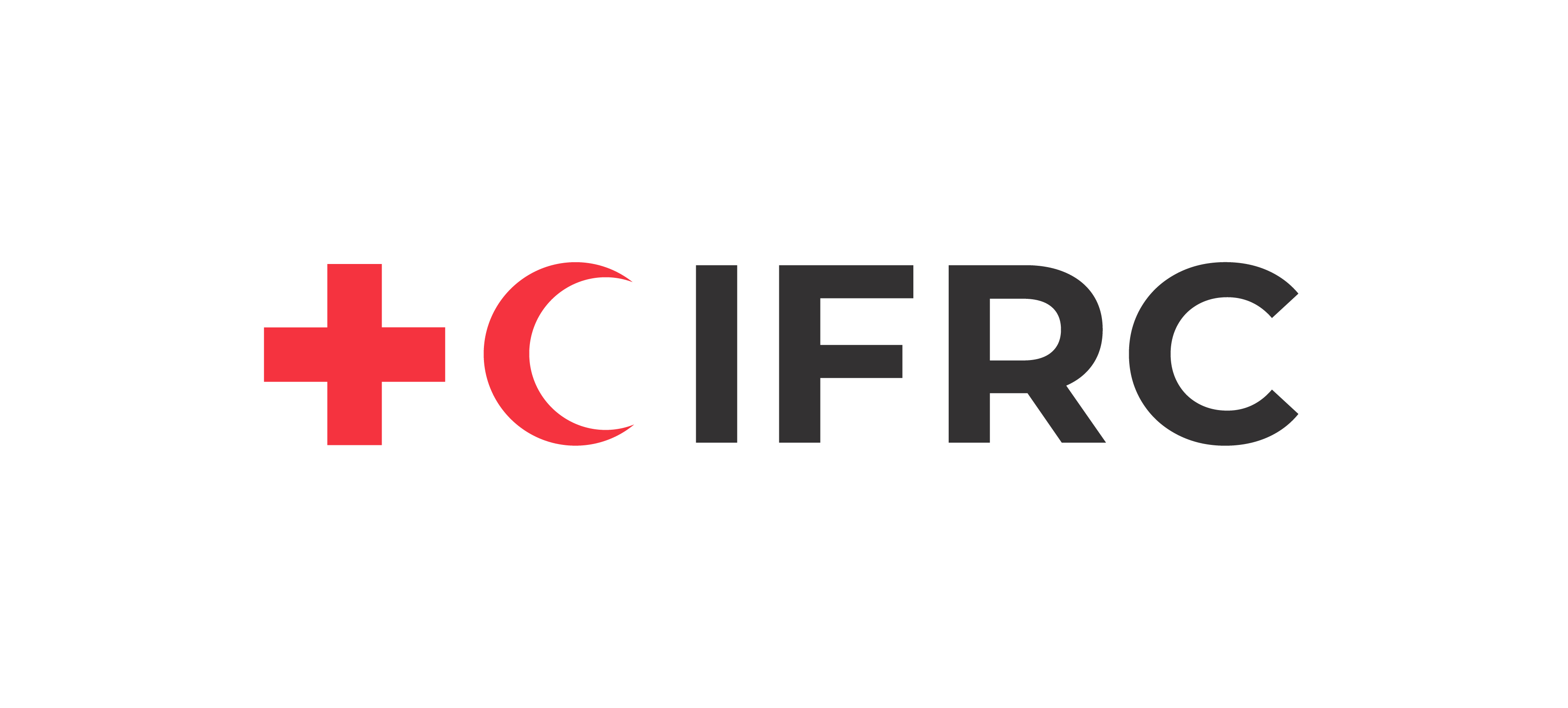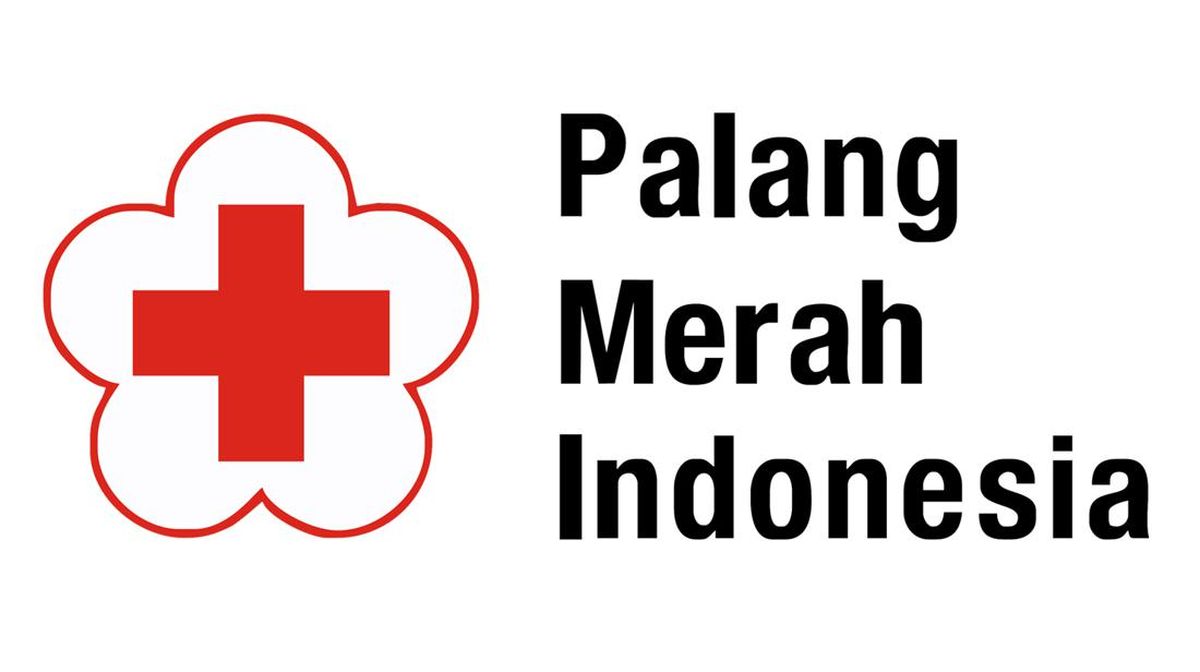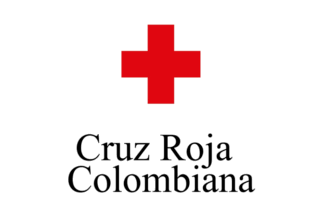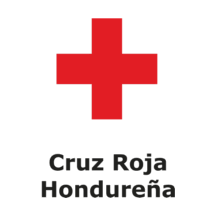ARC International Services Climate Initiative
In 2022, American Red Cross International Services Department (ISD) launched their ambitious Climate Initiative, a multi-year operation focused on assisting the most vulnerable communities within the Red Cross Red Crescent network that are facing significant risks from extreme weather and climate-related disaster impacts.
The Red Cross is committed to tackling the Climate Crisis, and as part of their international efforts, the Climate Initiative seeks to support vulnerable communities in over a dozen National Societies (NS) in developing and/or scaling up their climate action. As of 2025, the American Red Cross has supported 16 National Societies in their journey to reduce their overall vulnerability to climate disaster and climate change impacts.
Why This Matters
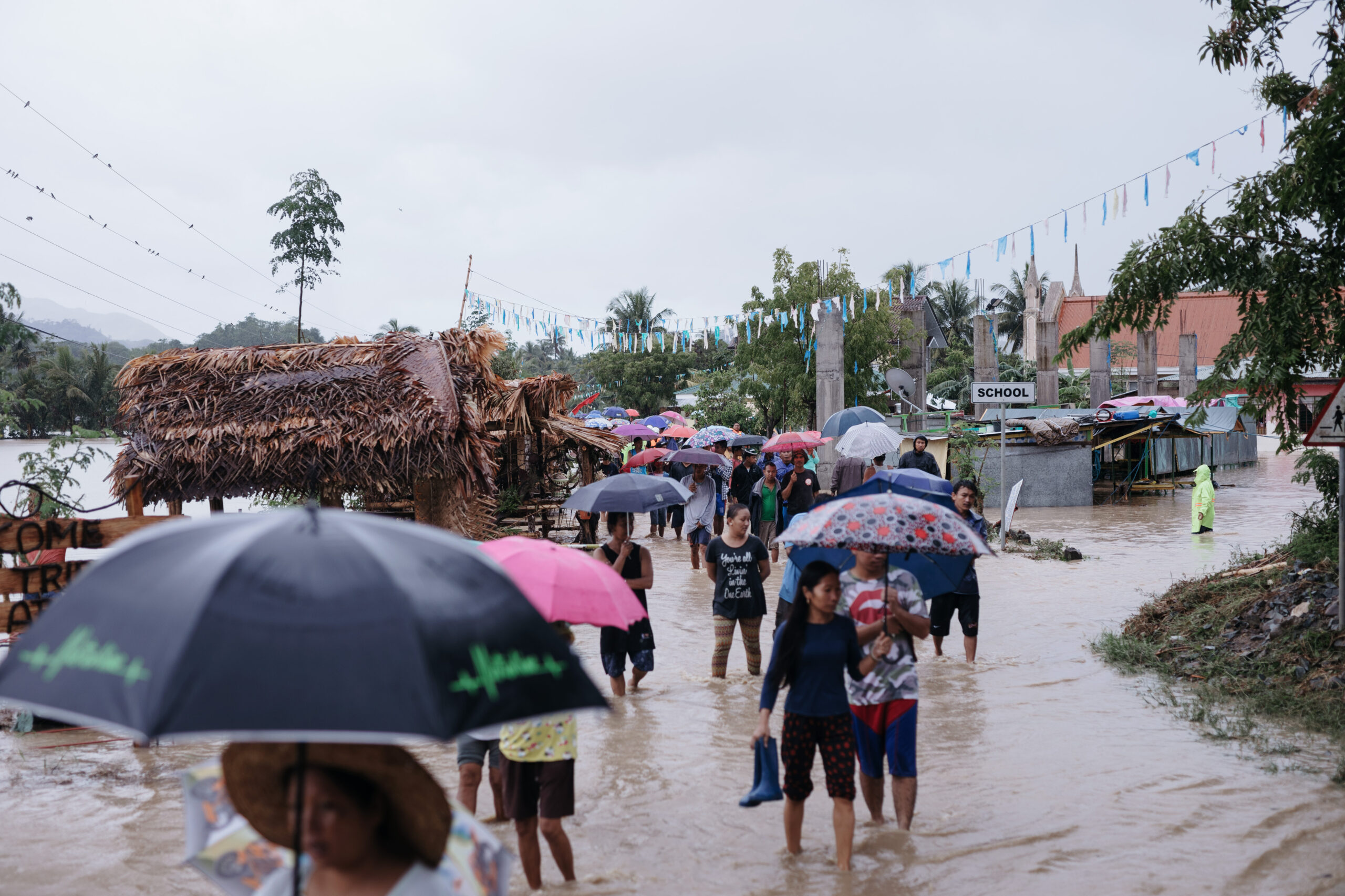
How We Work
Background
The ISD Climate Initiative aims to support the collective Red Cross Red Crescent efforts to tackle the impacts of a changing climate. It is part of an American Red Cross overall one-billion-dollar Climate Initiative that will run for its first phase between 2022 and 2027. ISD’s international component of the Climate Initiative aligns with ISD’s Strategy 2023, the IFRC's Strategy 2030, its 2021-2025 Plan and Budget, the IFRC’s Global Climate Resilience Platform, and the IFRC Youth Commission's 2021-2025 Climate Strategy. The International Climate Initiative is also aligned with the 2021-2025 Strategy from the Red Cross Red Crescent Climate Centre and relies on the Centre’s technical expertise for achieving impact.
The Climate Initiative was developed between December 2019 and June 2022. The domestic component of this initiative began implementation in March 2022, and the international component was phased in starting July 2022.
Over the course of this five-year period, ISD will support climate action in a over a dozen countries through a mix of bilateral and multilateral engagements. It is also anticipated that funds will be raised for international climate action through a mixture philanthropic giving, episodic disaster fundraising, US Government grants and private donor support.
Where We Work
The countries in which ISD partners are categorized as priority and climate countries, denoting the type of work completed within the American Red Cross partnerships:
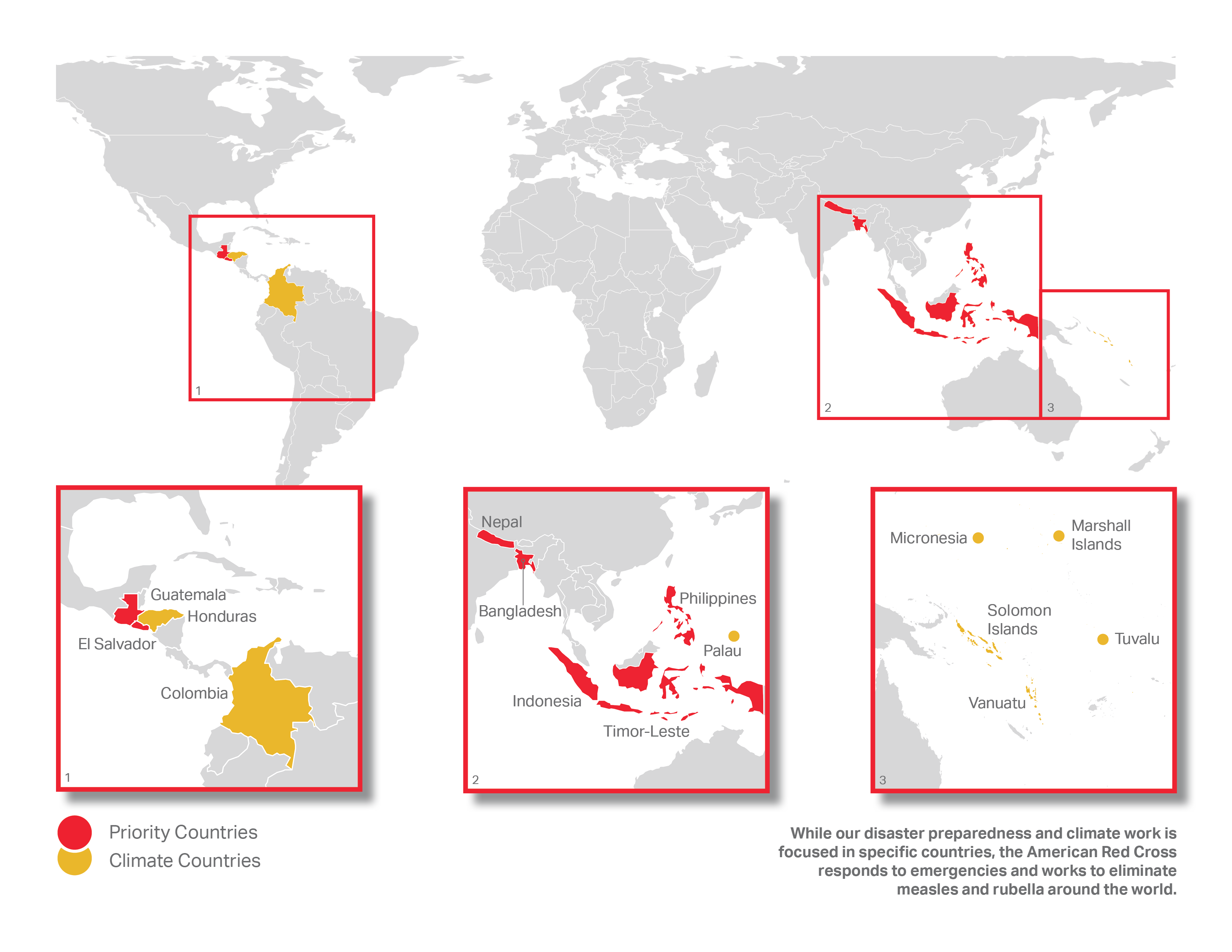
Key Focus Areas

Urban Resilience
Supporting cities in adapting to rising climate risks, particularly extreme heat and coastal threats.
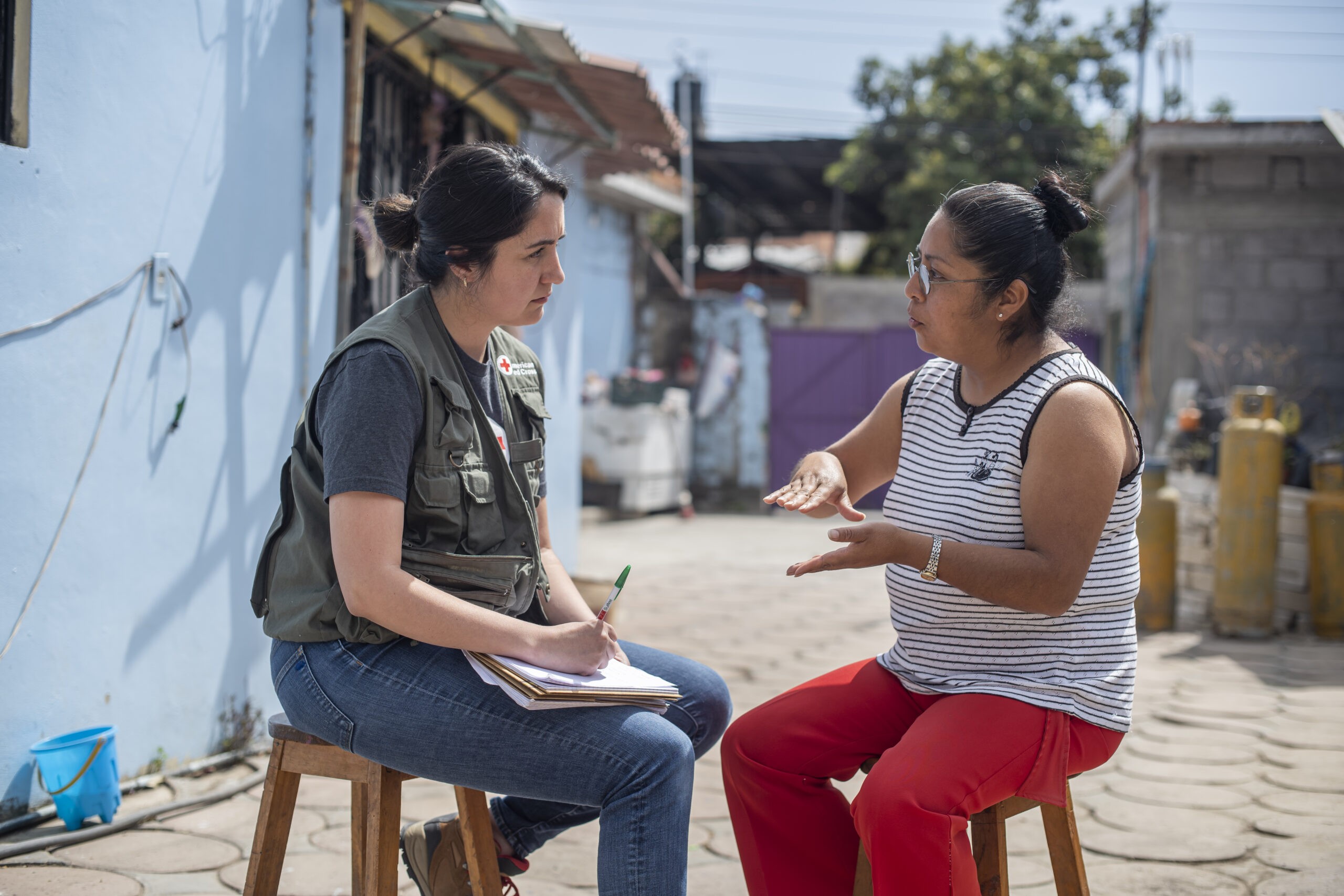
Anticipatory Action (AA)
Helping National Societies institutionalize AA to reduce the impact of climate shocks.
What We Do
To support over a dozen National Societies in their efforts to combat the worst impacts of climate change, there are several actions ISD has initiated in the first two years of the program, including but not limited to:
The Climate Strategy supports National Societies in identifying, designing, and implementing climate action priorities. By developing country specific climate plans, the Climate Strategy helps develop on-the-ground climate actions to address the climate crisis. The climate actions within the Climate Strategy align with the National Society’s overall strategy. To effectuate positive climate outcomes, several components are included, such as:
- A climate risk assessment which offers the opportunity for a National Society to consider the latest climate science, current or future climate-related risks and vulnerabilities.
- A policy environment overview which helps the National Society identify and assess opportunities, gaps, and potential partnerships from both a hazards and policy perspective.
- A strategic framework for the strategy, broken into four sections: purpose, outcomes, roadmap to implementation, and accountability.
Most National Society’s Climate Strategies are a multi-year strategies, that will be renewed at least every five years.
Between October 2023 and June 2024, ISD provided over USD 800,000 in grants to Climate and Priority countries for “National Society (NS) Seed Funding”. The goal of these grants was to advance the Climate Initiative, SPPs and/or CPPs by focusing on one or more of the Initiative’s three main focus areas: cities, youth action, and anticipatory action. Additionally, the funded grant proposals were required to demonstrate how funds can be used as a ‘start-up’ to attract further investments from US government agencies, such as USAID, or other donors; hence the term “seed grants”. Therefore, the projects that proposed funding community-based adaptation projects and local climate action were especially attractive under this funding objective.
After rigorous review from American Red Cross teams and technical subject matter experts, 8 proposals that showed this start-up attraction and strong alignment to the respective theory of change were funded in 7 different countries.
For more information, see links from several seed funding projects below:
To ensure that support is relevant and having an impact in its priority countries, American Red Cross personnel develop a five-year Strategic Partnership Plan (SPP) in close coordination with the National Society partner in each country, documenting the high-level goals and objectives which will be pursued together.
These SPPs document and build upon the existing alignment between the ISD Strategic Vision and the National Society partner’s strategic aims. These plans articulate, in a summary fashion, the planned strategic direction and overall desired impact based on an assessment of key factors in each priority country.
Climate Partnership Plans (CPPs) are the operational plans that articulate how ISD engages in climate risk management investments in a climate country. Like the SPP, the aim of the CPP is to find strategic alignment between the National Society’s climate-based strategic plan and priority objectives and the American Red Cross’ Climate Initiative.
This alignment determines which technical areas the American Red Cross can leverage its comparative advantage to and add the most value as a partner, forming the basis for the development of the CPP Strategic Objectives.


